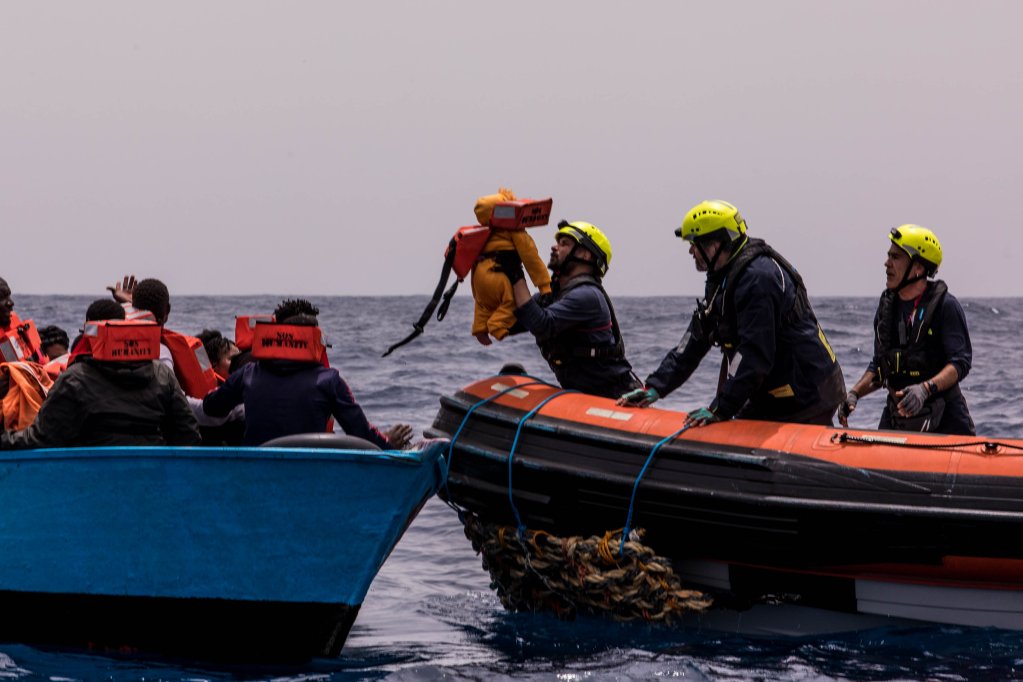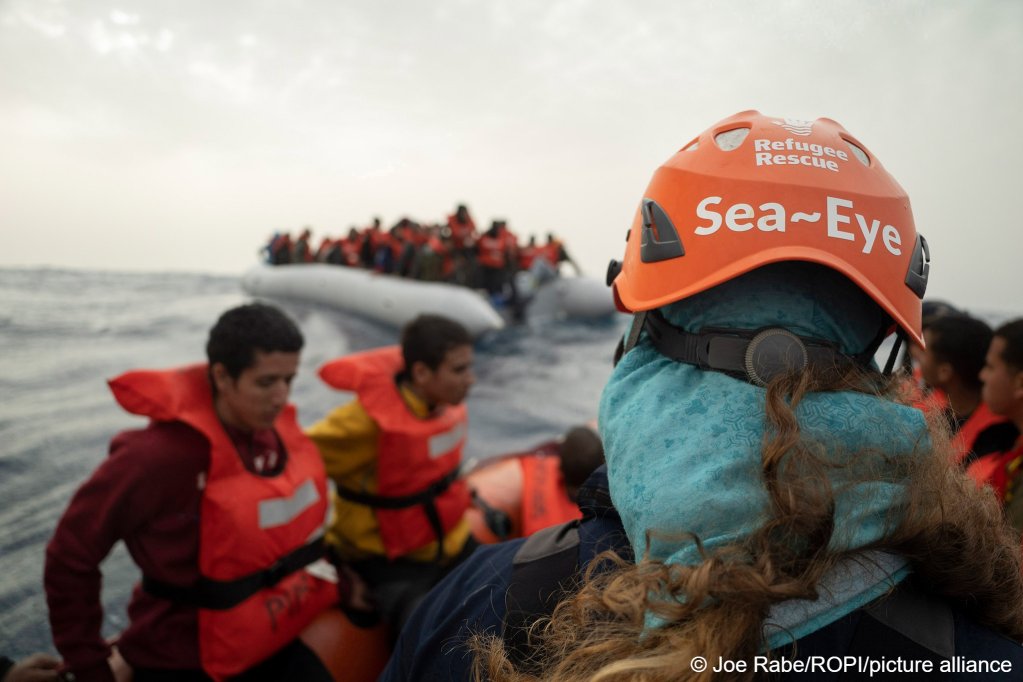Since 2022, the German government via the Federal Foreign Office has provided annual financial support of two million euros to organizations engaged in sea rescue operations. This funding will now be suspended. Budgets for overseas aid are also being reduced in the light of new spending commitments.
The German government will stop funding civilian sea rescue operations in the Mediterranean and beyond, the German newspaper Die Welt reported today (June 25).
Although 900,000 euros was already reportedly disbursed to non-government organizations involved in sea rescue in the first quarter of this year, the full two million euros previously allocated for this current year will no longer be released.
Since 2022, the German government under the Federal Foreign Office has provided annual financial support to the tune of two million euros to humanitarian organizations engaged in sea rescue. These organizations included SOS Humanity, SOS Méditerranée, RESQSHIP, Sea-Eye, and Sant' Egidio during the term of Foreign Minister Annalena Baerbock (Green Party).

The new conservative-led CDU/CSU government, with the social democratic SPD as junior partner, under CDU leader Friedrich Merz, who was elected Chancellor in May, has long been contesting the funding of these organizations. Current Foreign Minister, Johann Wadephul alleged in 2023 that he believed "sea rescue organizations were de facto collaborating with smuggling groups and promoting irregular migration to Europe."
From the opposition, Wadephul had criticized using public money to fund these organizations and has now decided to enact his policy.
Read AlsoGerman government funding of sea rescue organizations draws criticism
No prior notice
According to the organization Sea-Eye, before the cabinet decision to cut the funds from the federal budget, none of the organizations affected were contacted.
"The loss of over two million euros has a concrete impact on rescue operations and the chances of survival for people in distress at sea," Sea-Eye said in a press statement.
"For ten years, we have been filling the gap in the Mediterranean that should actually be filled by European countries – including Germany," said Gorden Isler, chairman of Sea-Eye.
In an email, a spokesperson for Sea-Eye told InfoMigrants that while the budget slash will jeopardize their operational capability in the search and rescue operations in the central Mediterranean, they "will continue to do everything in our power to save lives in the Mediterranean."
"To ensure the safety of those we rescue and our personnel, our missions will continue to be carried out exclusively by fully prepared crews. Until now, we have only been able to carry out our missions thanks to our strong network of volunteer supporters," said the Sea-Eye spokesperson.
German Doctors e.V. is one organization that supports Sea-Eye by providing volunteer medical staff.
Private citizen support through donations needed
Since it began its operations in 2015, Sea Eye has been financed almost exclusively by donations. Government funding in 2022 was the first time Sea-Eye received state support.
The funds helped Sea-Eye to offset the increased costs of fuel, mooring fees, and personnel on board and on land, and to ensure the presence of rescue ships in the area of operation.

In 2024, Sea-Eye received around 400,000 euros from the Federal Foreign Office. With the same amount, Sea-Eye could finance three missions with its rescue vessel SEA-EYE 5 in 2026.
"Now that these funds have been cancelled, we must find the money to fund these missions ourselves. As public funding dwindles, the commitment of civil society, for example, through donations, becomes increasingly important to us to continue saving lives in the Mediterranean," the Sea-Eye spokesperson said.
A change in strategy in response to funding cuts
Sea-Eye has changed our strategy to adapt to budget cuts and the growing political obstacles in civil sea rescue,
In order to be able to act more flexibly, we are now relying on a fleet of smaller ships. The first ship of this type, the Sea-Eye 5, has been in operation since October 2024.
However, as budget cuts and shifting policies tighten migration routes amid rising anti-migrant sentiment, Sea-Eye believes the most effective response to these cuts and restrictive policies is to raise public awareness and strengthen grassroots mobilization.
"Our response to populist narratives is information. In over 30 cities in Germany, local groups are organised on a voluntary basis for Sea-Eye -- they provide information about the humanitarian necessity of sea rescue and help to shape the public discourse in an objective way.
A documentary produced by Sea-Eye, "Kein Land für Niemand" (No land for nobody) questions common narratives about refugees and migration, giving people affected, academics, and political decision-makers a chance to express their views and analyses following screenings.
"In doing so, we want to encourage reflection -- and show that a more united Europe is possible," said the Sea-Eye spokesperson.
Other organizations affected
Germany’s 2025 draft budget includes deep cuts not only to sea rescue funding but also to broader development cooperation, sparking strong criticism from aid organizations, the specialized German magazine writing about migration issues Migazin reported this week.
The Development Ministry’s budget will drop nearly 1 billion euros compared to 2024. In 2022, the budget was 13.8 billion euros, and 10.3 billion euros in 2023. Humanitarian organizations such as Oxfam and Bread for the World warn that these reductions threaten gains made in alleviating hunger and inequalities when it comes to health and education.
Oxfam called the planned cuts "shocking" and said that the German federal government is following "the appalling example of many wealthy countries that are cutting back on their development spending," Migazin reported.
Under the proposed budget cuts, humanitarian aid will be slashed by 53 percent. About 30 NGOs have issued urgent appeals against the cuts, stressing that international cooperation remains vital amid rising global crises.
Germany, like many other European states, has said that growing insecurity and conflict in the world, means that the country needs to concentrate funding on issues such as NATO spending, rearmament to counter potential threats, as well as attempt to get its economy back on track after a period of recession and low-growth.
Read AlsoUS aid cuts could lead to more refugee movements, migration to Europe
